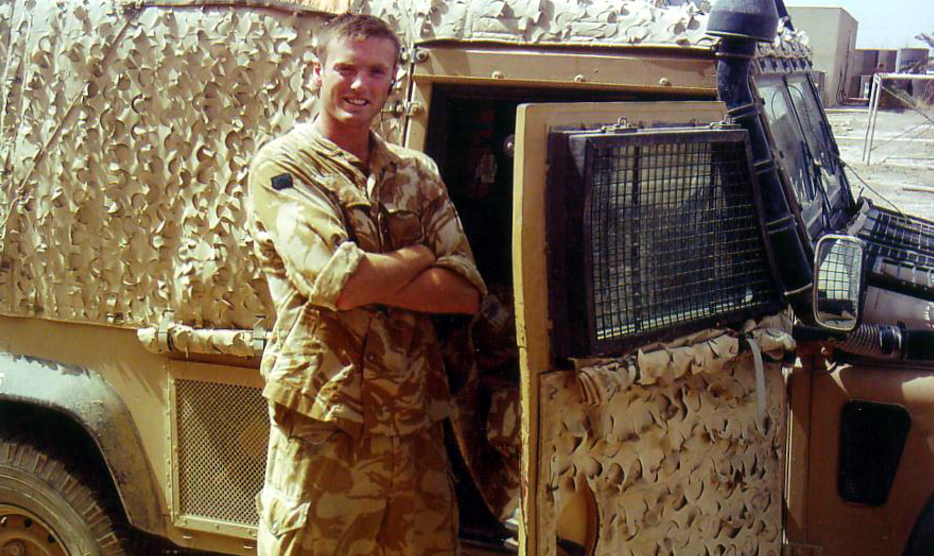The Ministry of Defence (MoD) has finally apologised to a mother whose son was killed in Iraq more than a decade ago, after a lengthy legal battle.
Private Phillip Hewett, from Tamworth, was killed by a roadside bomb along with two of his colleagues while travelling in a lightly armed “snatch” Land Rover in 2005.
In total, 37 members of the British Armed Forces died in the vehicles in Iraq and Afghanistan – so many they became known as “mobile coffins”.
Finally, after a 12 year legal battle, Sue Smith has received an apology from Defence Secretary Sir Michael Fallon for failures that “could have saved lives”.
Speaking to the BBC, she said: “He didn’t die for nothing”.
An issue at the very heart of our human rights
After the inquest into the three men’s deaths lasted just three hours, Sue decided to take the case to court, believing that the cars used were simply not fit for purpose.
Quite honestly it was like a smack in the face. It was almost as if those three lives were worth an hour each. It shocked me that it was so dismissive. Because by then I knew that (the vehicle) was what had to be questioned
Sue Smith
Article 2 of the Human Rights Convention protects the most basic of our rights – the right to life. The families of the soldiers killed in the vehicles argued that this had been breached. While soldiers accept they are entering a dangerous profession, the MoD should properly protect them during this time. Namely, by providing adequate training and equipment.
However, the Ministry of Defence tried to throw the case out, arguing that as the men were outside of the UK, they didn’t have to abide by human rights laws. In a landmark case in 2013 though, the Supreme Court ruled in the families favour, saying it didn’t matter that the soldiers weren’t on British soil – they could still sue for a potential human rights violation.
Despite the ruling, the MoD still tried to contest it. It wasn’t until the Chilcot report into the legality of the Iraq War was published that the tide really turned. Alongside the other findings of the 2.6 million word document, it said there had been “little time” to prepare for the conflict and there were “equipment shortfalls”. Specifically, it said the forces had known about the vehicles’ vulnerability for years – but had failed to do anything about it.
A right we must fight to protect
Today’s settlement and apology finally marks the end of the legal battle – with the Government at last acknowledging they had been fatally at fault, and pledging not to repeat the same mistakes. However, it’s a right we must still fight hard to protect.
Just last year Theresa May announced plans to suspend the human rights act in battle zones. The Government claims this would mean personnel were no longer hindered by the human rights act while in action, but in reality would also stop families and soldiers being able to go to court for violations.
War will always be dangerous for those working in and near it, however, it’s vital that both servicemen and women and their families know the Government is doing their utmost to protect them – and that they can challenge them if things go wrong.







